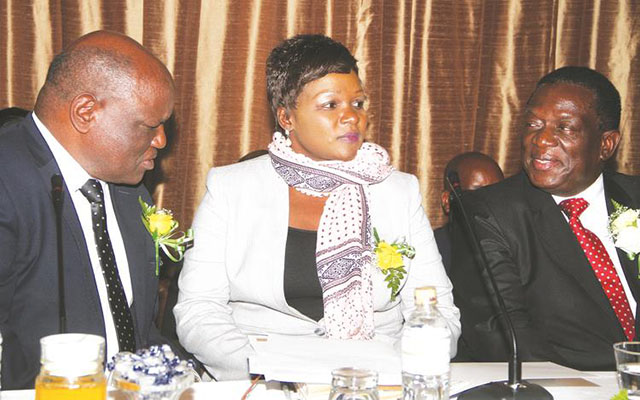Corruption probe targets judges
With President Emmerson Mnangagwa’s administration desperate to restore public trust, a senior government official has said the anti-corruption dragnet has been extended to cover all judicial officers, among them judges.

Justice, Legal and Parliamentary Affairs secretary Virginia Mabhiza revealed to the ‘Daily News on Sunday’ that government has put everyone within the judiciary under the spotlight by launching internal investigations aimed at flushing out corrupt judicial officers.
The investigations are going beyond any position, and will include the entire gamut, from prosecutors to judges.
“Everyone should be careful, because we are all being investigated and anyone caught on the wrong side of the law will face the full wrath of the law,” Mabhiza said.
Each year, corruption is draining billions of dollars from the State in rackets involving government officials and business people.
When he was voted into power in the July 30 presidential election, Mnangagwa promised to stop the rot although critics say he has been targeting only his perceived enemies.
Zimbabwe was last year ranked 157th out of 175 countries on the Transparency International index, which measures public perceptions of corruption in public institutions.
This comes amid fears shortcomings in the judicial system, including bribable judges and prosecutors, could undermine even the strongest of cases.
With poor remuneration being one of the major causes of corruption by judicial officers, Mabhiza said government was seriously looking into the issue.
A shortage of staff and poor pay is regularly cited as a major problem.
Some public officials are tempted to accept bribes in order to supplement their salaries as the economy continues on a downward spiral.
Zimbabwe has over the years suffered a serious economic meltdown that people also attributed to corruption by senior government officials and ordinary citizens.
“We are also alive to the issue of the conditions of service of judicial officers and these conditions of service are being reviewed,” she said.
In 2015, the Judicial Services Commission together with other stakeholders such as the Zimbabwe Republic Police, Law Society of Zimbabwe, the Zimbabwe Prisons and Correctional Services and members of the public, launched a campaign to end corruption, dubbed Against Corruption Together (Act).
During the launch, the issue of remuneration also popped up as one of the major causes of corruption by judicial officers.
Mabhiza said this campaign did not yield the desired results.
“There wasn’t much ground that was gained through this campaign. We suspected there was a cartel that was involved in corrupt activities and that is what the government is now trying to contain through other mechanisms,” she said, adding that the new department under the Office of the President and Cabinet was also aimed at boosting the fight against corruption within the judiciary and all sectors in general.
She also said the government had taken a wholesome approach in dealing with corruption within the judiciary through the deliberate transfer of magistrates and prosecutors across the country.
“The transfer of officers within the two sectors is also aimed at weeding out corruption,” she said.
Further confirming the severity of the issue, Mabhiza said there will be no sacred cows. She said no one will be spared in the investigations, including commissioners. Corruption in Zimbabwe has reached alarming levels, which has infiltrated several public and private institutions.
Over the years, there has been a growing concern over the government’s failure to bring bigwigs to book, as they are cited as the main culprits in corruption activities.
Corruption in Zimbabwe has become a cancerous scourge that has left the majority of Zimbabweans living in abject poverty while the high-wheeled ones live lavishly.
Over the years, government has been glaringly ignoring adverse reports by the country’s auditor-general on abuse of public sector funds.
In previous reports, the auditor-general has been unearthing massive abuse of funds in different ministries through flouting tender procedures and disobeying government rules, but nothing has been done to address that.
The country has been losing significant potential revenue due to corruption, which in turn is playing a part in bleeding the country’s economy. Daily News






